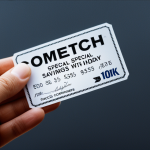Ultimate Guide: Effective Strategies for Saltwater Pool Maintenance in the UK Climate
Maintaining a saltwater pool in the UK can be a rewarding but challenging task, especially given the cooler climate and specific regulatory requirements. Here’s a comprehensive guide to help you navigate the world of saltwater pool maintenance, ensuring your pool remains a haven of relaxation and enjoyment throughout the year.
Understanding Saltwater Pool Systems
Before diving into maintenance strategies, it’s essential to understand how saltwater pool systems work. Unlike traditional chlorinated pools, saltwater systems use a salt chlorinator to generate chlorine from salt dissolved in the water through a process called electrolysis. This method produces a stable and balanced concentration of chlorine, reducing the need for manual chemical additions and offering a healthier swimming experience[1].
Also to see : Essential Safety Tips for Utilizing Electric Heaters in UK Swimming Pools
Benefits of Saltwater Pools
- Softer Water: Saltwater pools provide softer-feeling water that is less likely to irritate skin and eyes.
- Lower Maintenance: The salt chlorinator consistently regulates chlorine levels, reducing the frequency of maintenance.
- Natural Sanitizing: Salt is a more naturally occurring substance than harsh chemicals, contributing to a reduced environmental footprint.
Climate Considerations in the UK
The UK climate, characterized by cooler temperatures and occasional heating needs, presents unique challenges for saltwater pool maintenance.
Increased Energy Consumption
- Saltwater pool systems, especially those with heated pools or hot tubs, consume more energy due to the need for heating. This higher energy consumption contributes to increased greenhouse gas emissions, exacerbating climate change[1].
Practical Tips for Energy Efficiency
- Solar-Powered Systems: Consider using solar-powered pool heaters and pumps to reduce energy consumption.
- Heat Pumps: Invest in heat pumps powered by renewable energy sources like solar panels to lower carbon emissions and energy costs.
- Variable Speed Pumps: Upgrade to variable speed pumps, which allow for adjustable flow rates, optimizing resource efficiency[1].
Regular Maintenance Practices
Regular maintenance is crucial to ensure the longevity and efficiency of your saltwater pool.
Also to see : Optimal Autumn Temperature Settings for a Cozy Heated Swimming Pool in Your UK Home
Cleaning the Pool
- Backwashing the Filter: Regularly backwash the filter to maintain water quality and prevent clogging.
- Cleaning the Chlorine Generator: Clean the chlorine generator regularly to ensure it operates efficiently.
- Responsible Disposal: Ensure all backwash water and waste are disposed of responsibly to avoid environmental contamination[1].
Water Chemistry
- Balanced Levels: Maintain balanced water chemistry by regularly checking pH, alkalinity, and calcium hardness levels.
- pH Levels: Aim for a pH range of 7.2 to 7.8.
- Alkalinity: Maintain alkalinity levels between 80 to 120 ppm.
- Calcium Hardness: Ensure calcium hardness levels are between 200 to 400 ppm.
- Chlorine Levels: Monitor chlorine levels to ensure they are within the recommended range (typically between 1 to 3 ppm).
Debris and Algae Control
- Pool Covers: Use pool covers to prevent debris from entering the pool when not in use.
- Skimming and Vacuuming: Regularly skim the surface and vacuum the pool floor to remove debris and prevent algae growth.
- Algaecides: Use algaecides as needed to control algae growth, but always follow the manufacturer’s instructions to avoid overuse.
Eco-Friendly Alternatives and Sustainable Practices
Incorporating eco-friendly alternatives and sustainable practices can significantly reduce the environmental impact of your saltwater pool.
Natural Sanitizers
- Ozone Generators: Consider using ozone generators or UV systems as alternatives to chlorine generators.
- Clear Comfort AOP: Look into advanced oxidation process (AOP) systems like Clear Comfort, which use hydroxyl radicals to destroy contaminants without leaving unhealthy by-products behind[3].
Efficient Energy Use
- Energy-Efficient Pumps: Upgrade to energy-efficient pumps and filters to reduce electricity consumption.
- Renewable Energy Sources: Use renewable energy sources such as solar panels to power your pool equipment.
Regulatory Considerations in the UK
Understanding and complying with UK regulations is essential for responsible pool ownership.
Environmental Laws
- The UK has stringent environmental laws governing pool systems, ensuring the responsible management of water and alignment with broader environmental objectives.
- Local councils may have specific regulations regarding waste management from pool systems, which must be adhered to avoid fines or required modifications post-installation[1].
Future Sustainability Directives
- As the UK continues to focus on reducing environmental impact, future regulations might require innovations in water conservation or chemical usage. Stay updated on changes in regulations that could mandate adjustments to existing systems.
Practical Insights and Actionable Advice
Here are some practical insights and actionable advice to help you maintain your saltwater pool effectively:
Seasonal Maintenance
- Winterization: Properly winterize your pool to protect it from cold weather. This includes draining the equipment, cleaning the pool, and covering it to prevent debris accumulation.
- Spring Opening: When opening your pool in the spring, ensure all equipment is in good working condition, and the water chemistry is balanced before use.
Equipment Recommendations
- Variable Speed Pumps: Invest in variable speed pumps for adjustable flow rates, optimizing resource efficiency.
- Heat Pumps: Use heat pumps powered by renewable energy sources for efficient heating.
- Efficient Filters: Upgrade to energy-efficient filters to reduce electricity consumption.
Detailed Checklist for Saltwater Pool Maintenance
Here is a detailed checklist to help you stay on top of your saltwater pool maintenance:
Weekly Tasks
- Check Water Levels: Ensure the water level is at the recommended height.
- Skim the Surface: Skim the surface of the pool to remove floating debris.
- Vacuum the Pool: Vacuum the pool floor to remove settled debris.
- Check Chlorine Levels: Monitor chlorine levels and adjust as necessary.
Monthly Tasks
- Backwash the Filter: Backwash the filter to maintain its efficiency.
- Clean the Chlorine Generator: Clean the chlorine generator to ensure it operates efficiently.
- Check pH, Alkalinity, and Calcium Hardness: Test and adjust the water chemistry to maintain balanced levels.
Quarterly Tasks
- Inspect Pool Equipment: Inspect all pool equipment to ensure it is in good working condition.
- Clean the Pool Cover: Clean the pool cover to prevent debris accumulation.
Comparative Analysis: Traditional vs. Saltwater Pools
Here is a comparative analysis of traditional chlorinated pools and saltwater pools to help you understand the differences and benefits:
| Feature | Traditional Chlorinated Pools | Saltwater Pools |
|---|---|---|
| Sanitizing Method | Direct application of chemical chlorines | Salt chlorinator generates chlorine through electrolysis |
| Maintenance Frequency | Higher frequency due to manual chemical additions | Lower frequency due to automated chlorine generation |
| Water Feel | Harsher on skin and eyes | Softer and gentler on skin and eyes |
| Environmental Impact | Higher use of harsh chemicals | Lower environmental footprint due to natural sanitizing |
| Energy Consumption | Generally lower energy consumption | Higher energy consumption, especially with heating |
| Initial Cost | Lower initial cost | Higher initial cost due to salt chlorinator and other equipment |
| Long-Term Cost | Higher long-term cost due to frequent chemical purchases | Lower long-term cost due to reduced chemical use |
Quotes and Expert Insights
- “Saltwater pool systems offer a modern alternative to traditional chlorinated pools, gaining popularity for their many benefits, including softer-feeling water and a more natural swimming experience.” – [Chicabodes][1]
- “The higher energy consumption of saltwater pool systems contributes to increased greenhouse gas emissions, exacerbating climate change. However, using solar-powered systems and heat pumps can significantly mitigate this impact.” – [Chicabodes][1]
- “Clear Comfort’s Hydroxyl-Based AOP water treatment systems destroy the toughest contaminants instantly without leaving unhealthy by-products behind, making them a sustainable alternative to traditional chemicals.” – [Clear Comfort][3]
Maintaining a saltwater pool in the UK requires a combination of regular maintenance practices, eco-friendly alternatives, and compliance with local regulations. By adopting sustainable practices, using energy-efficient equipment, and ensuring proper water chemistry, you can enjoy your saltwater pool while minimizing its environmental impact.
Remember, the key to effective pool maintenance is consistency and attention to detail. Regular checks, proper cleaning, and the use of eco-friendly alternatives will ensure your pool remains a safe and enjoyable space for years to come.
Continue Reading
For more detailed advice and tips on maintaining your saltwater pool, consider consulting with pool maintenance professionals or joining online communities of pool owners. By staying informed and proactive, you can continue to enjoy the many benefits of your saltwater pool while contributing to a more sustainable future.

